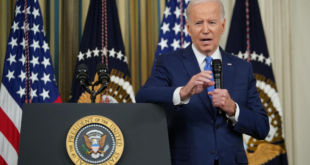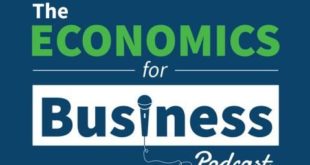When I was a child, my mother and I would take the Long Island Railroad to Brooklyn to see relatives a few times a year. My grandfather was always outside in front of the apartment house in Park Slope, where he and my aunts and uncles lived. Upon seeing him, I would run down the sidewalk to greet him, but before I could say “Hi, Grandpa!,” he would without fail press a shiny silver dollar into my hand. He was a quiet, dignified man with a big white mustache. Since he...
Read More »World War I: The Great War Was also the Great Enabler of Progressive Governance
Commentaries about World War I frequently discuss causes and consequences but almost never mention the enablers. At best, they might mention them approvingly, as if we were fortunate to have had the Fed and the income tax, along with the ingenuity of the liberty bond programs, to finance our glorious role in that bloodbath. Economist Benjamin Anderson, whose Economics and the Public Welfare has contributed greatly to our understanding of the period 1914–46 and is a...
Read More »Why “Greedflation” Isn’t Real
Even as price inflation slows and we move past June’s peak, progressives continue to push the concept of “greedflation”—that this year’s price inflation is caused by corporate greed and price gouging. This is inaccurate, based on bad economics, and it blames a consequence of the problem rather than the problem itself. If we want to address the real issues in the economy and avoid similar pain in the future, we need to get serious and drop “greedflation” from the...
Read More »Economic Calculation and the Great Reset
A grand plan is advanced by the World Economic Forum (WEF). Its name, “The Great Reset,” conveys the scope of this undertaking. Among its many audacious goals, it will “offer insights to help inform all those determining the future state of global relations, the direction of national economies, the priorities of societies, the nature of business models and the management of a global commons.” That is clearly all for the good. But what are the particulars? A number of...
Read More »Joe Biden and the “Transformational” Presidency
Much is made of the failure of Republicans to make predicted gains in the recent midterm elections, but, as Ryan McMaken has pointed out, Congress plays a much-diminished role in national governance to the point that even had the so-called Red Wave actually occurred, it is doubtful that much would have changed regarding Joe Biden’s presidency. In fact, most of what Biden has done in his two years in office has been outside of Congressional legislative matters....
Read More »The Rise and Fall of Trussonomics
On July 8 this year, UK prime minister Boris Johnson resigned as Conservative Party leader after a Cabinet revolt over a series of ethics scandals had made his position untenable. A leadership election was then set in motion to allow party members to elect the next party leader who would succeed Johnson as PM. The result was announced on September 5: the winner was would-be Margaret Thatcher, Liz Truss. The queen invited Truss to become PM on September 6. Truss...
Read More »Tom Malengo on Brandjectory, An Innovative New Platform for Launching and Growing Entrepreneurial Businesses
A great benefit of the internet age is the capacity to accumulate, accelerate, and intensify connections between entrepreneurs, knowledge sources, investors, mentors, collaborators, and service providers. Businesses with a valid value proposition who are in the launch and early expansion phases can interconnect a network of powerful and qualified resources to support their growth. A good way to do so is to utilize a platform (another product of the internet age)...
Read More »Nationality and Statelessness: The Kuwaiti Bidoon
In his Nations by Consent, Murray Rothbard reminds us that the concept of a nation “cannot be precisely defined; it is a complex and varying constellation of different forms of communities, languages, ethnic groups, or religions.” And yet, in most states of the world, this concept of nationality has been transformed from a group with a shared heritage, language, and history into a set of documents that needs to be processed in central facilities. Gone are the days of...
Read More »“Antidemocratic” Just Means “Something the Regime Doesn’t Like.”
“Democracy” is the new “revolutionary.” In the old Marxist regimes, anything that displeased the ruling communist regime was said to be contrary to “the revolution.” For example, in the Soviet Union, national leaders spoke regularly of how the nation was in the process of “a revolutionary transformation” toward a future idealized communist society. Many years after the actual revolution and coup d’etat in Russia in following the collapse of Tsarist Russia, the word...
Read More »The End of World Dollar Hegemony: Turning the USA into Weimar Germany
In a recent essay, I explained how over time the US abused its responsibility to control the supply of dollars, the world’s premier reserve currency for settling international trade accounts among nations. This abrogation of its duties is leading to the likely adoption of a new reserve currency, commodity based and controlled not by one nation but by members, all watchful that the currency is not inflated. Let us continue the analogy of an individual receiving a...
Read More » Swiss Economicblogs.org
Swiss Economicblogs.org










